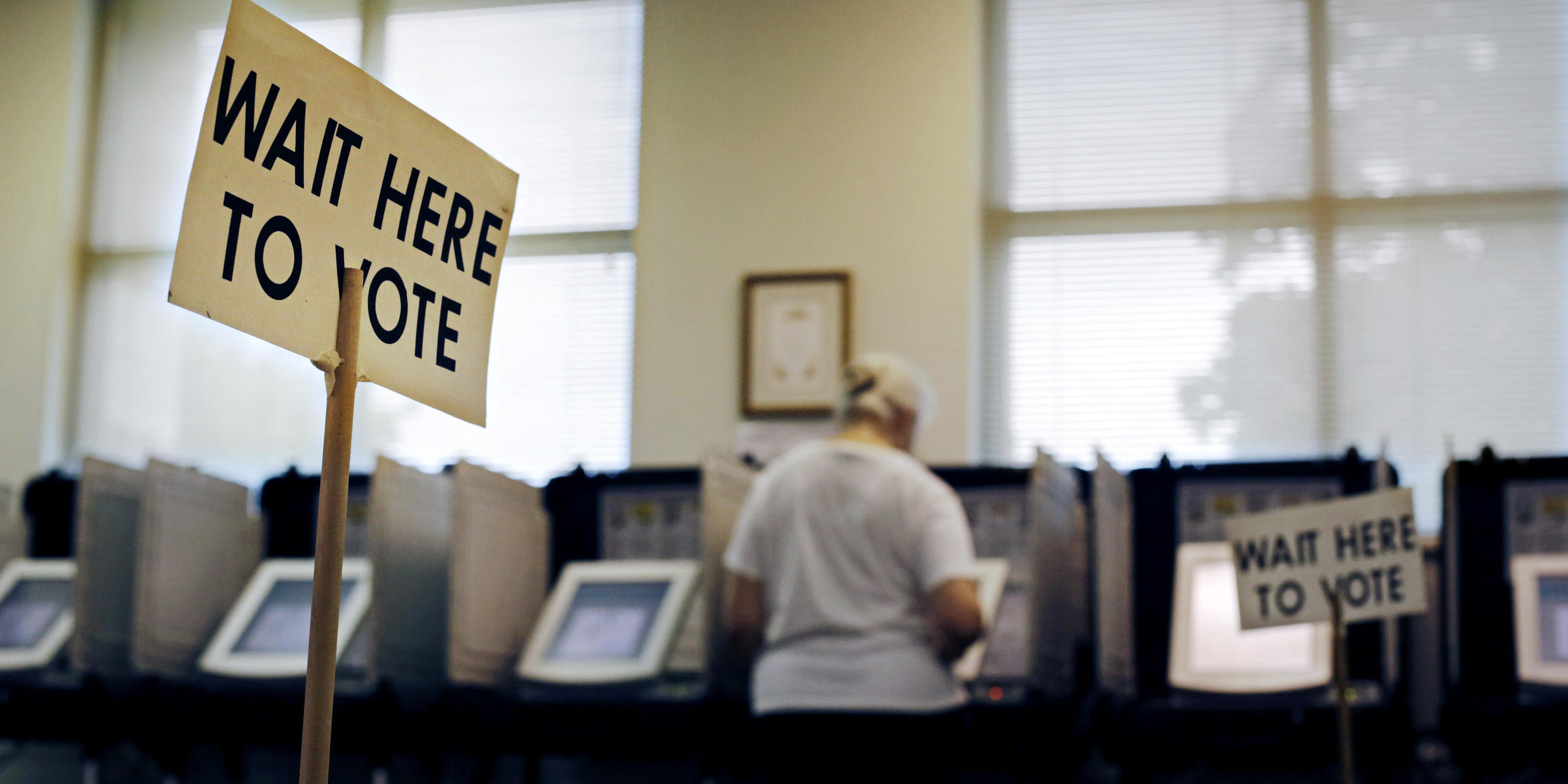In upcoming elections this year, Georgians may be required to vote with paper ballots they complete by hand, instead of the touchscreen voting machines used statewide since the early 2000s.
Lawyers for paper ballot advocates in an ongoing federal lawsuit say they plan to ask Judge Amy Totenberg in the coming days to effectively ban the state’s current touchscreen voting machines, which do not produce a paper trail voters can verify for themselves.
Georgia is one of about a dozen states still using electronic voting machines that produce no paper trail voters can verify for themselves. Cybersecurity experts warn this makes an election system vulnerable to potential hacks or malfunction.
“They’re going to be used to decide important issues across the state — various counties, various municipalities — with no level of confidence that the results that come out of those machines are actually what the voters intended,” said David Cross, an attorney who is arguing on the side of the advocates, representing a few individual voters.
Ahead of the 2018 midterm elections, lawyers for the advocates asked Totenberg for a similar order requiring hand-marked paper ballots.
In her order, Totenberg rebuked Georgia election officials over their handling of election security.
“The Court is gravely concerned about the State’s pace in responding to the serious vulnerabilities of its voting system,” the judge wrote.
But Totenberg denied the request to require hand-marked paper ballots weeks before voting began, citing the short timeline to make the switch and the potential for “bureaucratic confusion and long lines.”
Cross said the only reason Totenberg denied the advocates’ request was that the election was too close and too complex. But he said that argument is now gone ahead of elections this year.
In Georgia, 324 municipalities may hold elections in 2019, according to the Georgia Municipal Association. At least one election is expected to replace an outgoing state representative before the end of the year, and there could be more election contests.
Vincent Russo, a lawyer for the Georgia Republican Party who is defending the Secretary of State’s office in the voting machine case, raised questions about how a switch to paper ballots might play out in 2019.
“We don’t think it is practical to implement what they want in 2019,” Russo said at a status conference in early April.
Some local election officials have their own concerns about switching to a hand-marked paper ballot system, especially if Election Day is just months away.
“There’s a lot more to it than just saying, ‘Here’s a piece of paper, mark it and give it back to me,’” said Bartow County election supervisor Joseph Kirk, noting that training poll workers and voters could be an issue.
Kirk said Bartow is one of a handful of counties set to be a test site in 2019 municipal elections for new touchscreen voting machines the state plans to purchase ahead of the 2020 presidential primary.
Gov. Brian Kemp in April signed a sweeping election law that would require the state to use touchscreen voting machines that print paper ballots meant to reflect a voter’s selections. These are often called ballot-marking devices, or BMDs.
But the advocates for hand-marked paper ballots who are suing the state over the current machines have indicated they will also question constitutionality of the BMDs in court, once the state purchases the technology.
Earlier this year, more than a dozen computer scientists signed onto a letter warning that electronic voting machines that print paper ballots still would be vulnerable to hacks or malfunction.
So, Georgia looks set to face litigation over its voting technology into 2020.
Meanwhile, lawyers for the advocates of hand-marked paper ballots are anxious to look back as well and examine how the current touchscreen voting machines worked in 2018.
“All of the experts are saying that Georgia system is vulnerable,” said Bruce Brown, an attorney for the Coalition for Good Governance, an organization that advocates for hand-marked paper ballots and originally brought the lawsuit. “We want to get to the bottom of whether to what extent Georgia’s voting system is contaminated either with malware or infected with just bad programming.”
Judge Totenberg ordered Monday that discovery should “begin immediately.”










